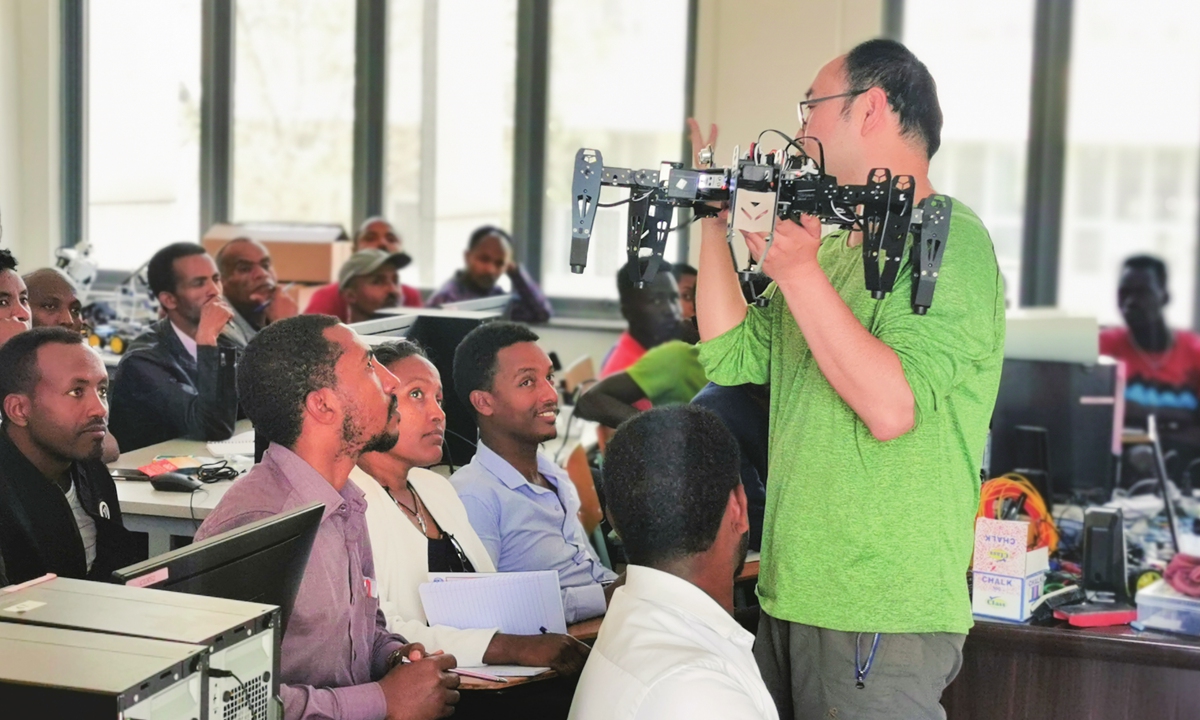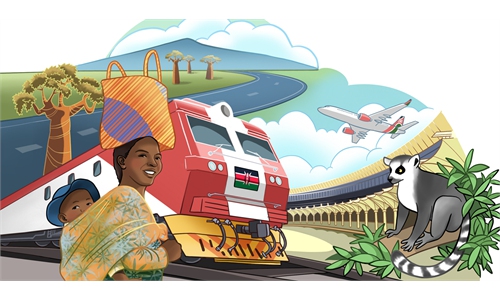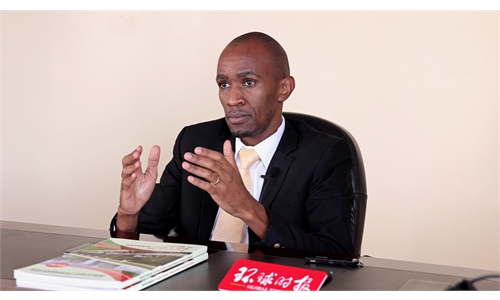Luban Workshop in Africa a valuable asset for vocational education empowering locals


Jiang Jiang gives a robotics class in Addis Ababa, Ethiopia in 2019.Photo: Courtesy of Jiang Jiang
Before becoming teachers at Luban Workshop, Gao Yang and her husband Jiang Jiang had been teaching in Ethiopia for nearly 10 years. They told the Global Times that Ethiopia has become their second home, and it is the local students' strong belief - "knowledge can change destiny" - that touched the Chinese couple and led them to dedicate themselves to a career in teaching.
"Everyone in the workshop knows the Chinese Luban, the ancient Chinese woodcraft master, and the Luban spirit, and they are looking for an Ethiopian Luban," said Gao, who is now deputy director of the Luban Workshop International Development Research Center at Tianjin University of Technology and Education (TUTE).
Efforts paying off
The Ethiopian Luban Workshop in Addis Ababa, Ethiopia, signed an agreement in October 2019 and was successfully inaugurated in April 2021. Only the couple truly understands the difficulties they faced during this process. Due to the COVID-19 pandemic, Ethiopian teachers were unable to travel to China for training, and Chinese experts were unable to travel in the other direction. After overcoming various challenges, necessary equipment finally cleared customs and arrived at the workshop.
To ensure that the inauguration ceremony was not delayed, the Chinese couple locked themselves in a lab and assembled the equipment step by step according to the instructions. When they encountered problems, they sought assistance online from Chinese experts available 24/7.
"We ate and drank very little when in the lab to reduce the time to go to the toilet and the risk of getting COVID-19," Gao recalled with a forced smile.
With the joint efforts of the couple as well as two volunteers, they finally managed to catch up with the original schedule. The equipment was successfully set up, and the classroom furniture was neatly arranged, astonishing Ethiopian officials who were already planning to delay the opening ceremony.
Gao mentioned that many Ethiopian leaders and college professors visited the workshop almost every day as most of them did not believe the workshop would be ready in time.
The Ethiopian Luban Workshop is a joint project between TUTE and the Technical and Vocational Training Institute in Addis Ababa. It focuses on four major technical areas, including sensor technology, mechatronics, industry control and robotics, which Gao said are areas of expertise at TUTE. Responding to requests by Ethiopian officials, they plan to offer rail-focused programs for the Addis Ababa-Djibouti railway project and specialized courses in artificial intelligence to help identify and process Ethiopia's famous coffee beans.
Noteworthy achievements
Jiang, the director of the Confucius Institute of Technical and Vocational Training Institute in Ethiopia and a teacher at the Luban Workshop, told the Global Times that like Germany and Japan, China has been providing technical assistance to Ethiopia for a long time. However, unlike Germany's "dual system" or Japan's "Kaizen," China's technical assistance did not have a specific name until the emergence of the Luban Workshop which has given China its own identity in vocational education assistance in Ethiopia.
Currently, the Ethiopian Luban Workshop has trained over 300 students, many of whom have graduated from advanced training programs and started teaching their own students.
Kalkidan, a former student of the workshop, told the Global Times that she was pleased to receive the same training opportunities as male students in Luban Workshop, and was recruited into a good job. She hopes to come to China to continue her professional knowledge training in automation and serve more modern enterprises in Ethiopia.
In May 2023, the Ethiopian Luban Workshop represented the Ethiopian Federal Technical and Vocational Education and Training Institute at the third Ethiopian National Skills Competition. Ethiopian Prime Minister Abiy Ahmed Ali visited the Luban Workshop booth, praising the initiative's achievements.
The workshop so far has established itself as a talent training center for technical skills across Africa. It serves the East Africa Skills Training and Regional Integration Program, acting as an important base for training high-level faculty in 16 vocational colleges in Ethiopia, Kenya, Tanzania, Uganda, and other countries.
Global influence
Since the establishment of the first Luban Workshop in Djibouti in March 2019, China has set up 12 Luban Workshops across 11 African countries.
Li Li, director of the Vocational Education Department of the Tianjin Municipal Education Commission, told the Global Times that the Luban Workshop combines academic education with vocational training. It shares China's high-quality vocational education and product technologies with the world and has received positive recognition from partner countries.
He pointed out that the Luban Workshops serve Chinese companies going global and international production capacity cooperation, cultivating local technical talent that Africa urgently needs to fuel its economic and industrial development.
"Years of practice have shown that the construction and development of the Luban Workshop not only promotes youth employment and improves quality of life in Africa, but also contributes to the economic and social development of African countries," he said, adding that Luban Workshop has also greatly enhanced people-to-people connections between China and Africa, advances the BRI, and builds "a closer China-Africa community with a shared future."
The organizers are planning to enhance the quality of Luban Workshop construction in Africa. By establishing a closed-loop management system from project development to process supervision and three-year acceptance evaluation, strict adherence to the core concept of the Luban Workshop will be ensured. This will achieve "high-quality and sustainable construction and development for every Luban Workshop in Africa," Li said.




